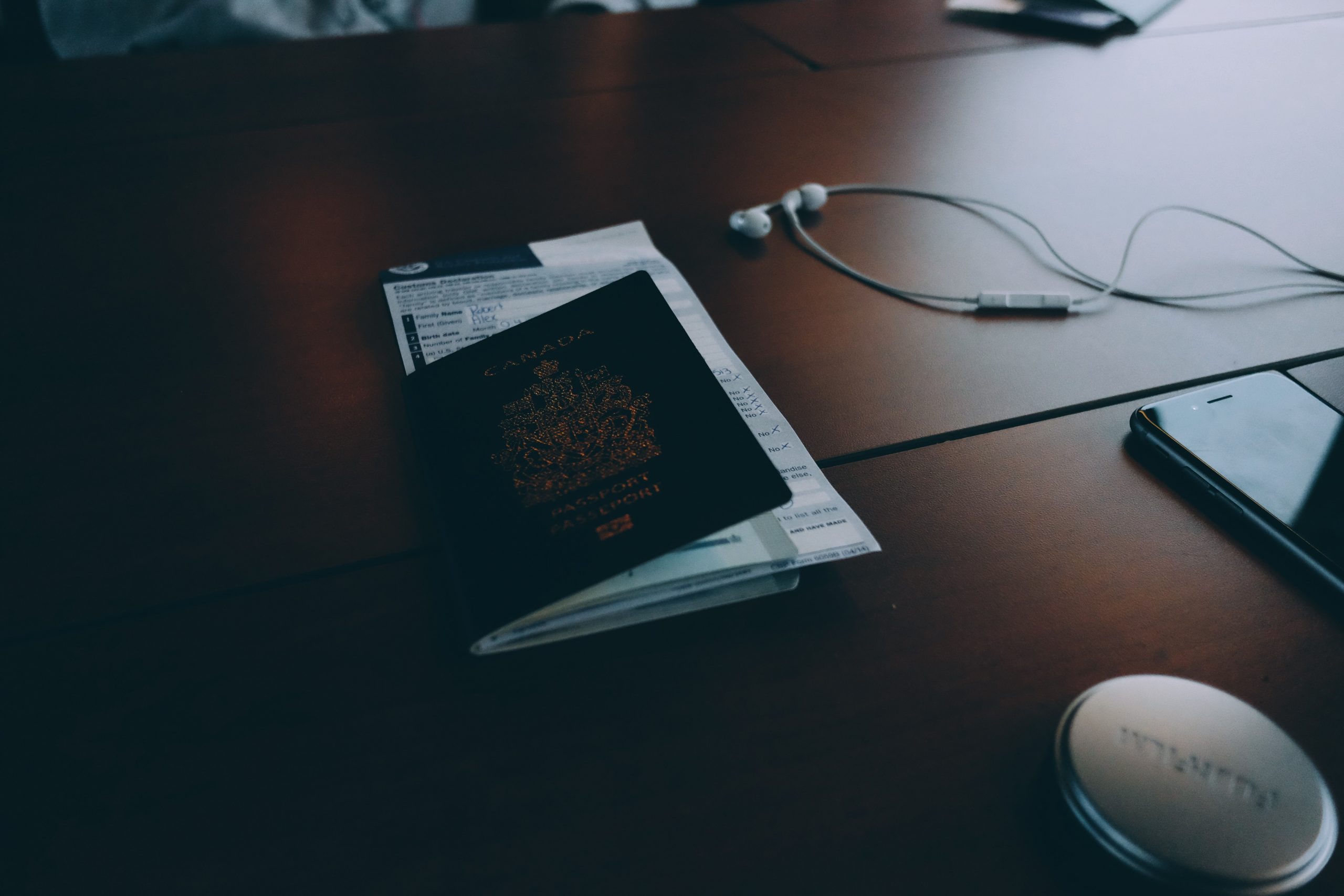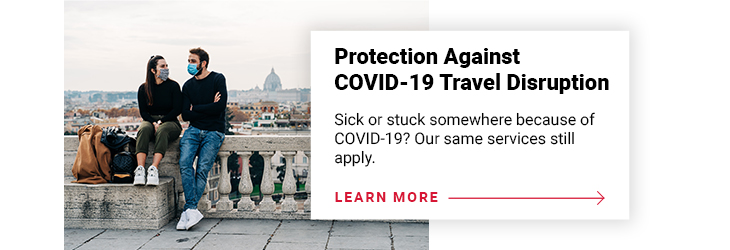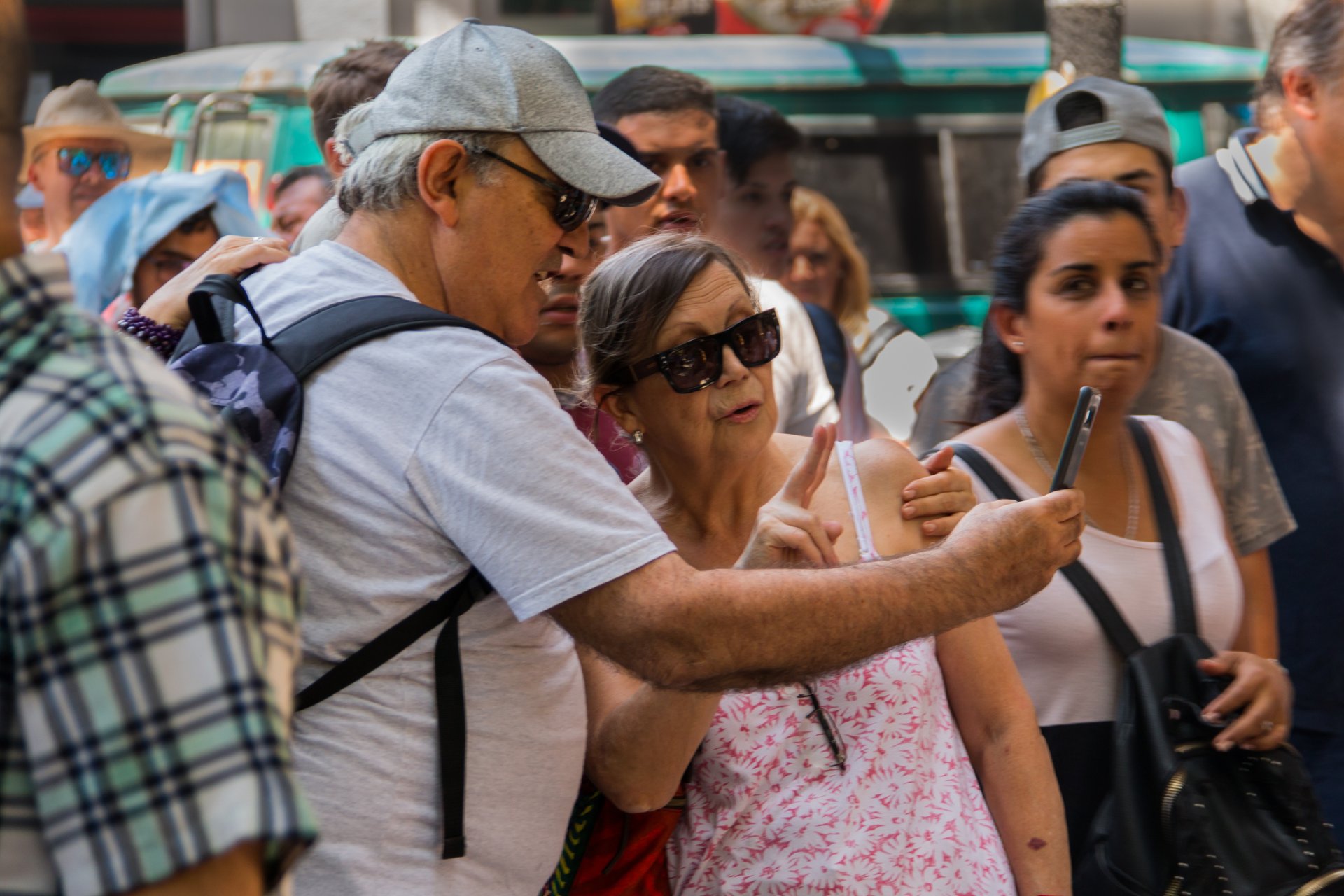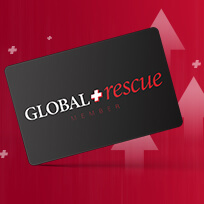Traveling? Be prepared for paperwork.
A Global Rescue member traveling to Costa Rica requested proof of her Global Rescue membership and her travel insurance policy before her trip. The letter needed to be in English and Spanish and specifically address the three questions the Costa Rican government requires: the validity of the travel insurance policy during the dates of visit, coverage for medical expenses and coverage for quarantine lodging while in Costa Rica.
Another Global Rescue member was denied boarding a flight to the Turks and Caicos Islands because the dates on their travel protection membership and IMG travel insurance policy were incorrect.
“Travelling in the COVID era is a minefield,” the member wrote. “The dates per se are fine, but the specific form required by Turks and Caicos must reference specific benefits — and that we won’t become a burden on the state.”
“Having the correct travel documentation right now is critical: passport, vaccinations, health insurance, even travel insurance. There is no question that we are entering a new normal,” said Daniel Richards, Global Rescue CEO.
Paper Chase
If you are boarding a flight to the United States, you will need to show a paper or electronic copy of your negative test result to the airline. Once you arrive at your destination, public health officials might request to see it as well.
It’s not the same for every airline — Australian airline Qantas plans to ask passengers to provide proof they’ve had a COVID-19 vaccination if they want to fly into or out of the country — and requirements vary for every country. Greece is currently allowing tourists with a negative COVID-19 PCR test to visit starting May 17. Other countries, like Cyprus, currently say travelers who can provide proof of vaccination upon arrival will no longer have to present a negative COVID-19 PCR test or be subject to quarantine.
“COVID is treacherous, but equally onerous is the paper chase required by other countries to enter,” said a Global Rescue member. “PCR tests, insurance(s), special (extensive) authorization applications — one application was 11 pages long. The form is submitted online for clearance and authorization is either granted or denied. No authorization to enter, no travel.”
The lack of uniformity is also an opportunity for dodgy behavior.
“I know one person who travelled roundtrip between Switzerland and Thailand through Amsterdam flying a major airline on a faked COVID-19 test photoshopped using his friend’s legitimate test result. The same person tried this scam entering Spain recently and it didn’t work. There is a lack of uniformity in the methods used at international borders to verify test certificates,” said Roger Hyde of Dulabab Journeys, a U.S.-based travel company and a Global Rescue Safe Travel Partner.
Vaccine or Testing?
In January, Iceland started providing vaccine certificates to citizens to help them avoid border restrictions. The country will also recognize vaccine passports from other countries, allowing visitors to skip testing or quarantine rules if they show proof of full COVID-19 inoculation. But not every country will require proof of vaccination for entry. Testing and quarantines may continue to be the norm as the vaccine continues to roll out worldwide.
Either way, proof of testing or vaccination is currently a paper system.
According to the CDC, airlines require a negative test result for international arrivals to the U.S. with “sufficient personally identifiable information on the test result to ensure a match with the person’s passport or other travel information. This could include but is not limited to name, date or birth, age, passport number, etc.”
Countries in Latin America, Asia and Africa require a yellow fever vaccine and immunized travelers carry the Yellow Card, a paper certification of vaccination issued by national health agencies and enforced by The World Health Organization. U.S. COVID-19 vaccine recipients have something similar: a small white card called a COVID-19 vaccination record card with the vaccine received, the date received and the location you received it.
But Daniel Richards, CEO of Global Rescue, told The Washington Post he thinks all testing and vaccination information will soon be stored electronically.
Companies and countries are developing what travelers will eventually need: a trackable, verifiable and portable system that could keep pace with a vaccine rollout expected to cover the entire world’s population by 2024.
The CommonPass, a way to digitally document health status while traveling, is currently in trial. International Air Transport Association (IATA) offers the IATA Travel Pass, a digital platform to validate and authenticate all country regulations regarding COVID-19 passenger travel requirements. Delta and American Airlines are using a mobile app called VeriFLY that works like a health passport, allowing international visitors to the U.S. to verify they’ve tested negative for COVID-19.
The move to digital doesn’t eliminate concerns.
“There are issues with individual and civil liberties with tracking health information,” Richards said. “There are also bad actors around the world who might want to get access to that information. Creating a system that meets the necessary security requirements while respecting individual’s rights is going to be challenging.”
What to Do in the Meantime
While the technology is being developed and tested, here are some steps to keep you on the road and in the skies.
- Check with your destination country and take the required COVID-19 test at a certified lab in due time before traveling.
- Check your health insurance and see if it covers costs when you are abroad. If not, sign up for international health care coverage in case you need to cover medical expenses while abroad.
- Investigate travel protection memberships in case you get ill or injured while traveling and need transport to a hospital. Not every membership covers COVID-19 so be sure to ask.
- Have all of your travel information in one place: vaccinations, coronavirus test results, proof of health insurance, proof of travel protection services, passport, driver’s license, etc.
- Passengers whose documents are in a language other than English should check with their airline or aircraft operator before travel.
- Get documentation translated, if necessary.
- Make triplicate copies: carry one copy on your person, store one in your luggage or carry on and leave one with a reliable person back home.
Global Rescue provides members with advisory and transport services in connection with COVID-19 in the same manner as any other infectious condition. So long as it is safe for both the member and the transport team and there are no rules or regulations either in the member’s location or the destination prohibiting it, Global Rescue will provide transport services to members. Click here to learn more.












